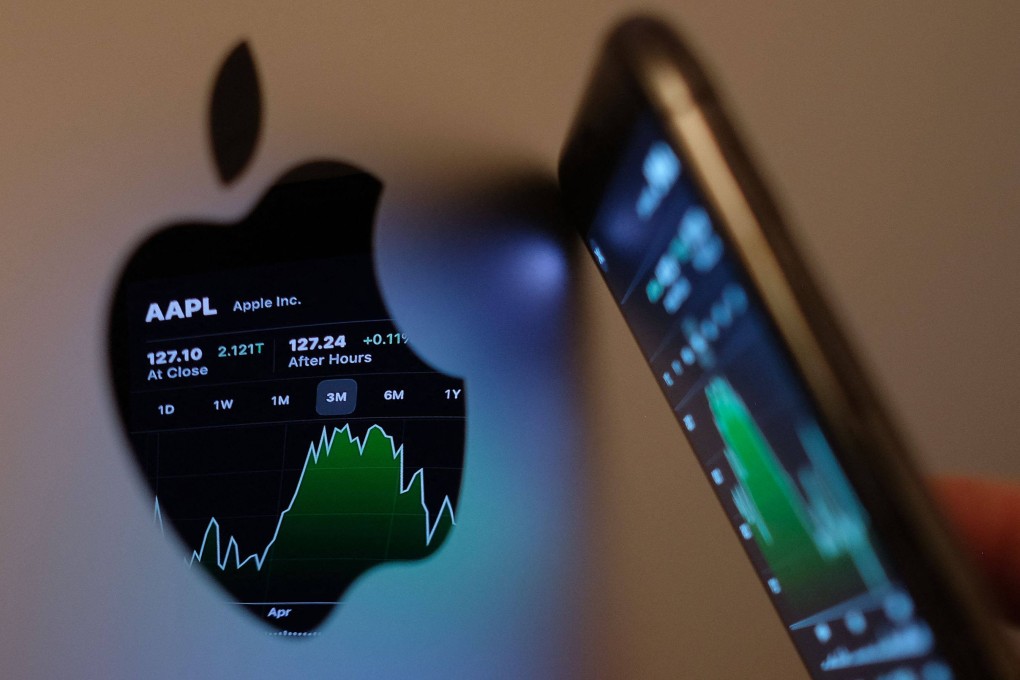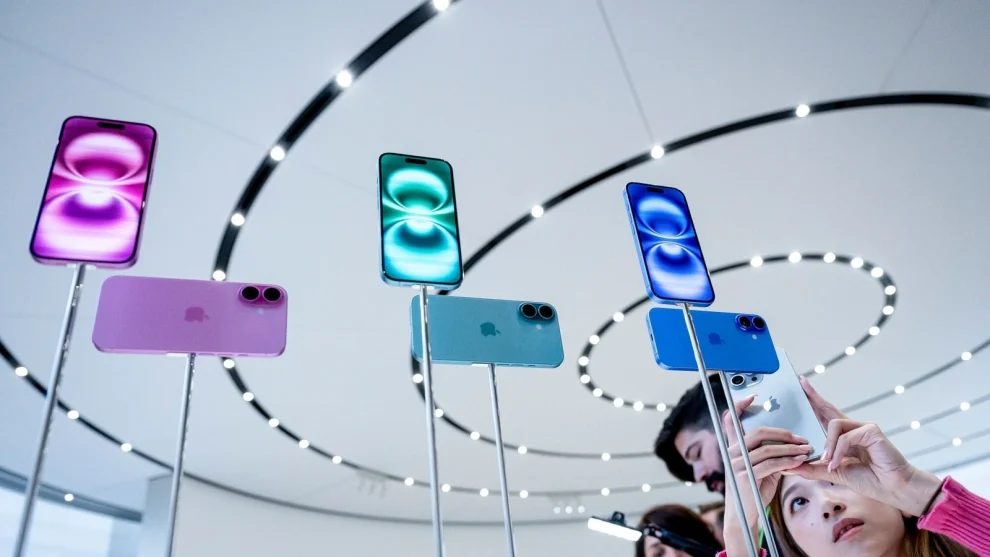Apple has achieved a remarkable 20% surge in new iPhone sales in China during the first three weeks of availability, according to a recent report by Counterpoint Research. This unexpected growth, occurring against a backdrop of economic uncertainty and intensifying competition, not only cements Apple’s position in the world’s largest smartphone market but also sends ripples through the global tech industry.
Counterpoint’s report paints a picture of extraordinary success for Apple in a market that many analysts had predicted would be challenging. Key findings include:
– A 20% year-over-year increase in new iPhone sales during the first three weeks of launch
– Particularly strong performance of the high-end iPhone Pro models
– Significant market share gains, with Apple now commanding an estimated 22% of the Chinese smartphone market, up from 17% last year
Ivan Lam, a senior analyst at Counterpoint, provides context: “This growth is especially impressive considering the overall smartphone market in China has been contracting. Apple’s ability to buck this trend speaks volumes about the brand’s strength and the appeal of its latest offerings.”

Several factors have contributed to Apple’s extraordinary performance in China:
1. Product Innovation: The new iPhone lineup, particularly the Pro models, has introduced features that resonate strongly with Chinese consumers. The improved camera systems, faster processors, and enhanced 5G capabilities have been cited as key selling points.
2. Strategic Pricing: Despite global inflationary pressures, Apple maintained competitive pricing in China, making the new iPhones more accessible to a broader range of consumers.
3. Brand Loyalty: Apple’s ecosystem and brand prestige continue to command strong loyalty among Chinese consumers, often transcending economic considerations.
4. Weakening Competition: Challenges faced by Huawei due to U.S. sanctions have left a gap in the high-end smartphone market that Apple has effectively filled.
5. Effective Marketing: Apple’s marketing strategies, including partnerships with influential Chinese celebrities and targeted social media campaigns, have effectively captured consumer attention.
Dr. Li Wei, professor of marketing at Peking University, comments on Apple’s strategy: “Apple has masterfully balanced technological innovation with cultural relevance in China. Their products are seen not just as devices, but as status symbols and lifestyle enhancers.”
Apple’s success in China comes at a crucial time for both the company and the broader Chinese economy. With China facing economic headwinds, including a property sector crisis and weak consumer spending, Apple’s strong performance offers a glimmer of hope for the luxury goods market.
Economist Zhang Mei of the China Center for Economic Research notes: “Apple’s success demonstrates that there’s still significant spending power among Chinese consumers, particularly for high-quality, aspirational products. This could have positive ripple effects across the premium goods sector.”
For Apple, the Chinese market represents not just a significant source of revenue but also a key manufacturing hub. The company’s ability to maintain strong sales in China could help buffer against potential supply chain disruptions and regulatory challenges.
Apple’s gains in China are sending shockwaves through the competitive landscape of the global smartphone industry. Key impacts include:
1. Pressure on Domestic Brands: Chinese smartphone makers like Xiaomi, Oppo, and Vivo are feeling the squeeze, particularly in the mid to high-end segments.
2. Global Implications: Apple’s success in China strengthens its global position, potentially affecting strategies of competitors like Samsung in other markets.
3. Ecosystem Expansion: Increased iPhone adoption in China is likely to boost Apple’s services revenue, including App Store purchases and Apple Pay usage.
4. Innovation Race: Competitors may need to accelerate their R&D efforts to keep pace with Apple’s technological advancements.
Industry analyst Wang Xiang comments: “Apple’s gains in China are reshaping the competitive dynamics not just locally, but globally. We’re likely to see increased innovation and possibly consolidation among other smartphone makers as they try to respond to Apple’s momentum.”
Despite the impressive sales figures, Apple faces several challenges in maintaining its growth trajectory in China:
1. Geopolitical Tensions: Ongoing U.S.-China tensions could potentially impact Apple’s operations or consumer sentiment towards American brands.
2. Regulatory Scrutiny: Chinese regulators have shown increased interest in reining in large tech companies, which could affect Apple’s business practices in the country.
3. Market Saturation: As Apple’s market share grows, finding new customers may become more challenging.
4. Economic Uncertainty: Continued economic pressures in China could eventually impact consumer spending on premium devices.
5. Technological Parity: Chinese competitors are rapidly advancing their own technological capabilities, potentially narrowing Apple’s competitive edge.
Apple’s success in China is likely to have far-reaching implications for the company’s global strategy:
1. Product Development: Features popular in China may influence future iPhone designs globally.
2. Supply Chain Reinforcement: Strong sales may lead to increased investment in Chinese manufacturing and supply chain operations.
3. Services Push: Apple may accelerate the rollout of its services ecosystem in China to capitalize on its growing user base.
4. Balancing Act: The company will need to carefully navigate its relationship with China while maintaining its global brand identity.
Apple’s performance in China isn’t occurring in isolation; it’s part of a broader shift in the global tech ecosystem:
1. Component Suppliers: Companies in Apple’s supply chain, many based in Asia, are likely to see increased orders and potentially higher stock valuations.
2. Software Developers: The growing iOS user base in China presents new opportunities for app developers, both in China and globally.
3. Retail Partners: Apple’s success could drive foot traffic to partner retailers, benefiting the broader retail sector.
4. 5G Infrastructure: Increased adoption of 5G-capable iPhones may accelerate 5G infrastructure development in China.
The surge in iPhone sales also reflects and influences consumer behavior and cultural trends in China:
1. Luxury Perception: The iPhone’s success reinforces its status as a luxury brand, potentially influencing perceptions of other Western luxury goods.
2. Digital Lifestyle: Increased iOS adoption may accelerate trends in mobile payment, social media usage, and digital content consumption.
3. Tech Nationalism vs. Global Brands: Apple’s success challenges the narrative of Chinese consumers exclusively preferring domestic brands.
Social media influencer and tech commentator Li Jing observes: “The iPhone isn’t just a phone in China; it’s a statement. It represents aspiration, global connectivity, and a certain lifestyle that resonates deeply with many Chinese consumers.”
Apple’s 20% sales surge in China marks more than just a successful product launch; it represents a significant shift in the global tech landscape. In defying economic headwinds and intensifying competition, Apple has not only reinforced its position in the world’s largest smartphone market but has also set the stage for a new phase of global tech competition.
As the dust settles on this initial sales period, all eyes will be on how competitors respond, how Chinese regulators react, and how Apple leverages this success to fuel its next phase of growth. The implications extend far beyond quarterly sales figures, touching on issues of global trade, technological innovation, and the evolving relationship between American tech giants and the Chinese market.
For now, Apple’s unexpected triumph in China serves as a powerful reminder of the company’s ability to innovate, adapt, and captivate consumers, even in the most challenging of markets. As the global tech industry watches and reacts, one thing is clear: the battle for smartphone supremacy is far from over, and the next moves by both Apple and its competitors will be crucial in shaping the future of mobile technology.
















Add Comment